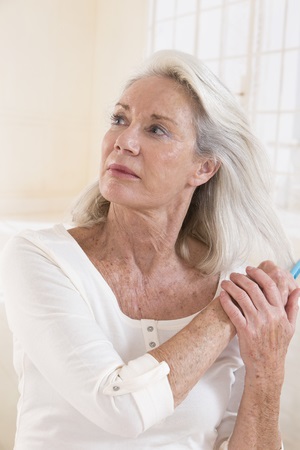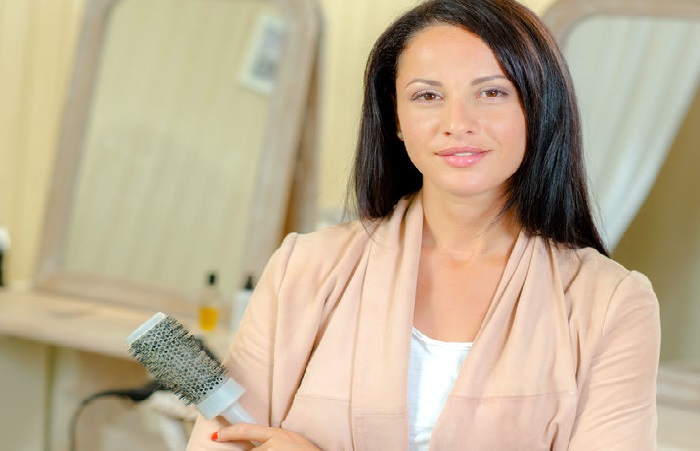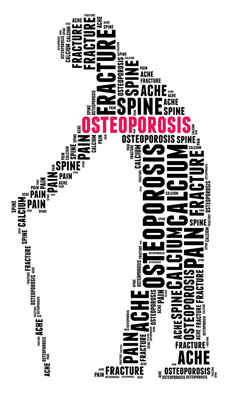Care For Your Hair After Menopause
How you care for your hair may change during menopause, when it can feel like every cell of your body is being altered. From the speed of your metabolism to the appearance of your skin and energy level, you no longer know what to expect from your system.
Unfortunately, menopause and hair loss do go hand in hand for many women. The good news is that you can learn to care for your hair in a way that minimizes those changes.
Like most things in relation to menopause, solutions are best applied as early on as possible. This guide will illuminate some hair care tips that can help you preserve your thick, shiny locks.
Menopause and Hair Loss
Anything that causes fluctuations in your hormone levels can cause changes in the thickness of your hair. Since menopause leads to a decrease in the natural production of estrogen and progesterone, hair growth starts to slow down and many women experience some level of hair loss as a result.
The problem is compounded when male hormones known as androgens are given more power. These hormones are known to destroy hair follicles, leading to devastating hair loss. Androgens are naturally produced by the female body, but the levels inside most women aren’t high enough to cause a problem with their hair. When estrogen and progesterone start to decline or the production of androgen is heightened due to menopause, these follicle-destroying hormones can take center stage.
You might consider talking to your doctor about hormone replacement therapy (HRT). If your doctor isn't knowledgeable in this area, contact an endocrinologist. They specialize in hormonal imbalances.
Dry Hair Care for your Hair
As estrogen levels continue to drop, you may also notice that your hair is becoming dry. You may not have the volume that you enjoyed in your younger years. You might want to begin coloring your hair, as your natural color begins to lose its personality.
These things are caused by the lower levels of estrogen flowing through your system; but there are some dry hair care tips that may limit the damage as you care for your hair:

- Start using a deep conditioner. Massage it into your scalp and allow your hair to absorb it fully. With routine use, it will add some moisture back into your thirsty locks.
- When you go outdoors on hot, sunny days, apply a leave-in moisturizer. It may also help to wear a hat to protect your hair and scalp from additional damage caused by the sun.
- Consider using products like Nioxin to minimize hair loss and keep the hair you do retain healthy.
- Use an anti-dandruff shampoo that contains zinc and/or selenium if your scalp feels dry.
- Reduce or eliminate using hair dryers, straighteners, and other heated hair tools. The damage caused by the heat increases the risk of drying your scalp and hair breakage.
- Don't use ponytail holders. Instead, twist your hair into a loose bun to prevent breakage.
Natural Hair Care Tips
Many women go through hormone replacement therapy to balance out their hormones and ease the symptoms of menopause, but it’s also important to take care of your body on a daily basis. In addition to care for your hair, these tips will give you some natural and highly effective ideas on what self-care should include after menopause.
- Fine tune your diet. Deficiencies in vitamins and minerals can also cause dry hair and skin. You don’t want to intensify the problem now that menopause is taking effect, so make sure that you’re consuming wholesome, nutrient-dense foods in addition to taking either a fish oil supplement or a high-quality, extra-virgin olive oil. There are also daily multivitamins specifically formulated for menopausal women.
- Eliminate as much stress from your life as possible. It may seem random and unrelated, but excessive stress can cause hormone fluctuations that impact your body similar to the effects of menopause.
- Make sure that you’re drinking enough water to keep your skin and hair moisturized and healthy. Many women are unknowingly dehydrated, and that has damaging impact on the cells making up the hair and skin.
- Be gentle! You’ll notice the thinning of your hair most if you break more strands than your body can regrow in a short period of time. Treat what you do have with great care, brushing and styling gently with as little product as possible.
- Treat yourself to a Rosemary Hot Oil Treatment that you can make at home to promote hair growth and scalp health.
- DIY hair and scalp treatment: 10 drops of each oil in a 4-oz bottle, then top of with water. Spray scalp nightly and massage in. Focus on challenged areas. Oils: Cedarwood (promotes thick and healthy looking hair and scalp); Clary Sage (promotes healthy looking hair and scalp); peppermint (invigorating and cleansing); geranium (keeps scalp healthy and clean, also provides shine); rosemary (apply for an abundant looking head of hair -- can add a bottle to 32oz bottle of shampoo); 3 Tbsp of Castor oil; 1 Tbsp Jojoba oil.
Menopause does cause change throughout a woman’s body, but that doesn’t mean you can’t remain stunningly beautiful throughout your lifetime. It all comes down to how you care for your body. Take action early because prevention is much easier than repairing damaged or thinning hair.
More Topics That May Interest You
Some of the advertisers on my website are affiliate partners, which means that I may receive a small commission from any sale, at no extra cost to you.
For example, the Amazon affiliate advertising program is designed to provide a means for sites to earn fees by advertising and linking to amazon.com.
Your tips and purchases help to support this free-information website.
Thank you.
The content of this website is for informational purposes only and not intended to be taken as a replacement for professional medical advice, care, diagnosis or treatment by a doctor, dietitian, physical therapist, nutritionist or fitness instructor.
DO NOT BEGIN ANY EXERCISE PROGRAM WITHOUT CHECKING WITH YOUR DOCTOR FOR UNDERLYING CONDITIONS THAT MAY PREVENT YOU FROM DOING SO.









